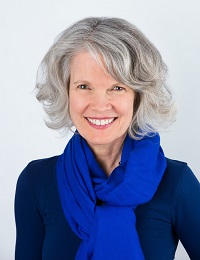Blog Posts | May 30, 2017
Share ThisBy Dr. Kathryn K. Matthew
IMLS Director
I returned to the IMLS office from St. Louis, feeling rejuvenated and inspired after the American Alliance of Museums annual meeting. It's not just DC that is being swept up by changing currents. So are museums. My optimism comes from the meeting’s attendees who have felt and reacted to these shifting tides. Museums have responded by shaping the incoming waves. Almost Jujutsu-like, they turned the strength of the incoming waves towards improvements, rather than remaining stymied behind wave-proof barriers.
Step aside from the rapidly spinning national news cycle, for a moment, and consider the local population you serve. One clear message is that, as a people, we now value innovation for innovation’s sake. We seek the "new and improved." As an indication of how far we have come, consider that describing an idea as "disruptive" is now meant as a compliment. No longer does only an "academy" of the learned and credentialed set the parameters for what is "the best" in the arts or sciences…practitioners do, peers do, and now also everyday people do. An entire career’s worth of work over many decades that results in a Nobel Prize was once considered the ultimate prize of a lifetime. Now MacArthur Genius Awards—going to early stage "disrupters"—rival the Nobels.
Museums have responded to this shift in public valuation by building personalized experiences for the general public, the non-experts. Where once museums held collections of masterworks or type specimens to be interpreted by the experts, now they strive to intensify the personal experience and provide immediate benefits for all of their users. They allow everyone to be an evaluator of "the best."
Rising to this challenge, museums are getting out into their communities to connect with local trendsetters and innovators. Every community has curators of what is “cool” and “new.” Museums are placing new value on everyday insights, "aha" moments, and novel experiences. Museums are capturing the imaginations of their constituencies through afterschool programs, photography contests, internships, and community co-creations—and in so doing become catalysts, shaping what comes next within their communities.
During our Community Catalyst Town Hall last fall in Philadelphia, Reverend Starsky Wilson (Co-chair of the Ferguson Commission formed in the aftermath of the riots in Ferguson, MO) reconciled the apparent paradox of museums as "keepers of the truth" and museums as safe spaces that are shared by and with members of the public. Museums contain masterworks, but they also support the creation of new meanings and community innovations. These shared community spaces where new truths are found and our institutional spaces where long-standing truths are kept need not be seen or treated as oppositional or incongruent any longer. Today's new perspectives and innovative approaches are indeed shaped by others' past works, discoveries, and truths.
So why did I come away from the AAM annual meeting in St. Louis feeling inspired? I heard and saw efforts by museums to take more active roles to spur local innovation. IMLS is fueling that energy by encouraging museums to build on momentum in their communities with our Community Catalyst Initiative, as well as Museums for America and National Leadership Grant funding. I also saw at AAM how museums are listening to their communities to identify and interpret the local thought-climate. They are striving to co-create with their local communities. For example, to address community-identified challenges such as truancy, museums intervene with afterschool programs, virtual access to online collections for students, or art programs in the schools. At IMLS, we are redoubling our efforts to fund not just what appears innovative to me, or to us within the museum field, but rather to support what is "innovative" to the communities served by your museums.
Now that is disruptive…and you in your museum can be a disrupter too!

About the Author
Dr. Kathryn K. Matthew was confirmed by the Senate in September 2015 as the 5th director of the Institute of Museum and Library Services. You can send her comments on the Community Catalyst Initiative by emailing communities@imls.gov
